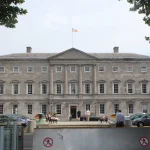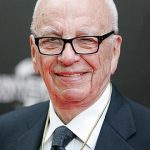It is not only in some eastern European countries and places further away that mainstream independent media face government pressure. It is also in the UK.
Prime Minister Boris Johnson’s government opened a public “consultation” on the future of Channel 4 to “review” its ownership and possibly sell it off to private commercial interests. Channel 4 is currently owned by the government but funded on a commercial basis.
It has a long and strong reputation for independent journalism including criticism of the government since it was founded in 1982 – under Margaret Thatcher’s government.
The current government claimed Channel 4 was at risk in a rapidly changing media landscape. At almost exactly the same time Channel 4 announced its best ever financial results. And it strongly criticized the government’s plans for lack of evidence and transparency. The government consultation was due to end on September 14.
The government’s move on Channel 4 follows increased pressure on the BBC in the wake of an embarrassing critical report on how it handled its scoop interview with Princess Diana over 25 years ago. The BBC was already under pressure over its own cuts to local news across the UK and a looming government review of funding and governance and the report unsurprisingly sparked questions and criticism from both long-time critics in Fleet Street tabloids – with their own long history of questionable practice – and Boris Johnson’s government and MPs.
The independent report on May 20 2021 by retired judge Lord John Dyson found that journalist Martin Bashir used deceitful practices – faked documents designed to convince Princess Diana to grant the blockbuster interview in 1995 in which she spoke candidly about the breakdown of her marriage to Prince Charles, heir to the throne.
The report also said BBC management failed to follow its own protocols before the interview, was “woefully ineffective” in its subsequent investigations, and asked if a series of BBC management actions following the interview constituted a cover-up.
The BBC apologized, said it has better procedures now, and launched an internal review of its editorial policies. It did not specify how it will deal with management failures in the handling of the issues.
Arguably the world’s most trusted news source, the BBC faced a series of questions about its actions and opportunistic calls for changes that could endanger its editorial independence and possibly threaten its very existence.
Journalistic media like the UK Press Gazette and organizations such as the National Union of Journalists (NUJ) rallied to defend the BBC’s journalists but they also noted difficult questions still to be answered.
Government consultation on Channel 4
Government considers sell off
Media minister defends plan
Channel 4 record results








